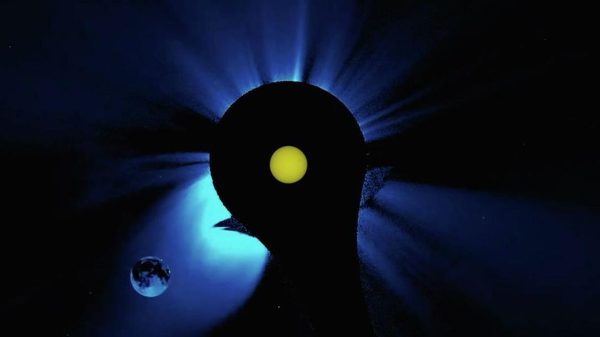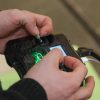The Oxford/AstraZeneca vaccine offers as little as 10% protection against the Covid variant first seen in South Africa, researchers have suggested.
Scientists who conducted a small-scale trial of the vaccine’s efficacy said it showed very little protection against mild to moderate infection, though they expressed hope that – in theory – it would still offer significant protection against more serious infection.
Covid variants and vaccine resistance: all you need to know
Read more
South Africa has halted the rollout of the Oxford/AstraZeneca jab, while a UK health minister indicated that an annual Covid jab could become the norm for many people as scientists work to stay a step ahead of the virus’s mutations.
Prof Shabir Madhi from the University of the Witwatersrand, who led the trial, said that, while the study was small, it was designed to focus on determining whether or not the vaccine had at least 60% efficacy against Covid to any degree of severity.
Quick guide Vaccines: how effective is each one and how many has the UK ordered?
Show
Hide
Pfizer/BioNTech
Country US/Germany
Efficacy 95% a week after the second shot. Pfizer says it is only 52% after the first dose but the UK’s Joint Committee on Vaccination and Immunisation (JCVI) says this may rise to 90% after 21 days.
The UK has ordered 40m doses and is rolling them out now
Doses Clinical trials involved two doses 21 days apart. The UK is stretching this to 12 weeks.
Oxford/AstraZeneca
Country UK
Efficacy 70.4% 14 days after receiving the second dose. May have up to 90% efficacy when given as a half dose followed by a full dose. No severe disease or hospitalisations in anyone who received the vaccine.
The UK has ordered 100m doses and has begun distribution
Doses Two, four to 12 weeks apart
Moderna
Country US
Efficacy Phase 3 trial results suggest an rating of 94.1%.
The UK has ordered 17m doses, to be delivered in March or April
Doses Two, 28 days apart
Novavax
Country US
Efficacy Phase 3 trials suggest 89.3%.
60m doses ordered by the UK, with distribution expected principally in the second half of the year
Doses Two
Janssen (part of Johnson & Johnson)
Country US
Efficacy 72% in preventing mild to moderate cases in US trials but 66% efficacy observed in international trials. 85% efficacy against severe illness, and 100% protection against hospitalisation and death.
30m doses ordered by the UK
Doses: One, making it unique among Covid vaccines with phase 3 results so far
Photograph: Stéphane Mahé/X02520
Was this helpful?
Thank you for your feedback.
“The results that we now describe against the variant, the point estimate is 10%. Clearly, that is far off the 60% mark and, even if you had a larger study you are unlikely to get to a vaccine efficacy readout of even 40 or 50%,” he told BBC Radio 4’s Today programme.
“What the study results really tell us is that, in a relatively young age group demographic – with very low prevalence of morbidities such as hypertension and diabetes etc – the vaccine does not protect against mild to moderate infection.”
He said its effectiveness against serious infection could possibly be inferred based on the Johnson & Johnson vaccine, which uses “similar technology”. “Extrapolating from that, there’s still some hope that the AstraZeneca vaccine might well perform as well as the Johnson & Johnson vaccine in a different age demographic that are at highest risk of severe disease,” he said.
He added that laboratory studies could reveal it is not just antibodies that are effective in protecting against severe disease, but also T-cell immunity. On the issue of delaying the second dose, he said the Oxford vaccine efficacy after a single dose was 75% but this was before the South African variant arose.
The news has caused concern that the vaccines now available will prove insufficient to end the crisis on their own and manufacturers are already working on new versions that will offer protection against variants.




















































Свежие комментарии